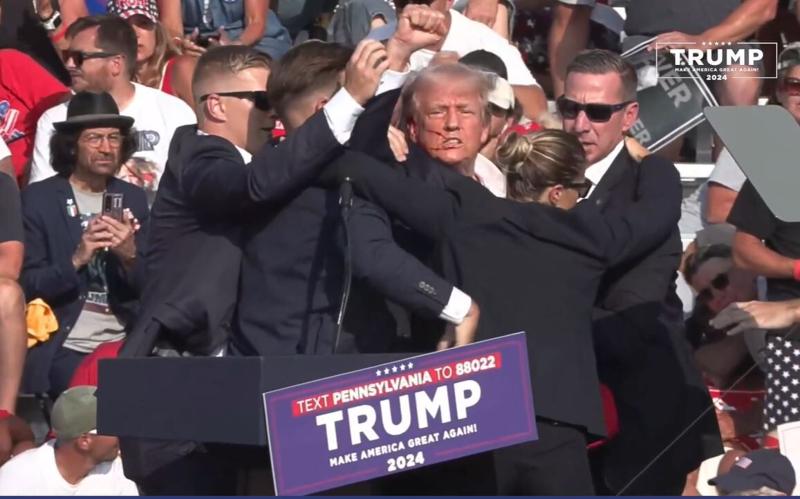A report from the U.S. Secret Service said multiple communication and operational failures happened on the day a lone gunman shot at former President Donald Trump in Pennsylvania in July.
A summary of the agency’s investigation pointed to a cascade of errors that preceded the attempt on Trump’s life while he spoke at a rally on July 13 in Butler, Pennsylvania. One of the gunman’s shots struck Trump’s ear.
“It is important that we hold ourselves to account for the failures of July 13 and that we take the lessons learned to make sure that we do not have another mission failure like this again,” Acting Director Ronald Rowe said.
Rowe said the agency needs “a shift in paradigm in how we conduct our operations.” That will include more people, equipment and technology.
The internal report, which is separate from other congressional investigations, first pointed at communication failures. For example, the report noted that some local police didn’t know there were two separate communications centers on site and mistakenly thought the Secret Service was directly receiving their radio transmissions.
Another communication problem was that the local tactical team, operating on the second floor of the AGR building where the shooter attacked from the roof, had yet to contact Secret Service personnel before the rally.
“Multiple law enforcement entities involved in securing the rally questioned the efficacy of that local sniper team’s positioning in the AGR building, yet there was no follow-up discussion about modifying their position,” according to the report.
Thomas Matthew Crooks, 20, of Bethel Park, Pennsylvania, shot at Trump from a nearby rooftop. U.S. Secret Service agents returned fire and killed Crooks. A firefighter attending the rally was killed and two others were injured.
The report noted concerns about the July 13 rally’s venue at the Butler Farm Show site. An advance team recognized those concerns, but measures to address those problems weren’t taken.
“There was a lack of detailed knowledge by Secret Service personnel regarding the state or local law enforcement presence that would be present in and around the AGR complex,” according to the report. “There was also a lack of knowledge regarding the specific footprint of resources that would buttress the secure area of the venue and separate it from the AGR complex, which was outside of the site’s secure perimeter.”
The internal report said communication problems were the cause of the failures. It said, “different radio frequencies used at the Butler Farm Show venue were not conducive for quickly sharing real-time information.”
“The failure of personnel to broadcast via radio the description of the assailant, or vital information received from local law enforcement regarding a suspicious individual on the roof of the AGR complex, to all federal personnel at the Butler site inhibited the collective awareness of all Secret Service personnel,” the report said.
Better communication could have made a difference.
“If this information was passed over Secret Service radio frequencies it would have allowed [Trump’s] protective detail to determine whether to move their protectee while the search for the suspicious suspect was in progress,” according to the report. “Vital information was transmitted via mobile/cellular devices in staggered or fragmented fashion instead of being relayed via the Secret Service radio network.”
An advance drone team reported technical problems that could have spotted Crooks before the rally.
“It is possible that if this element of the advance had functioned properly, the shooter may have been detected as he flew his drone near the Butler Farm Show venue earlier in the day,” according to the report.
The agency will finalize the report in the coming weeks.







